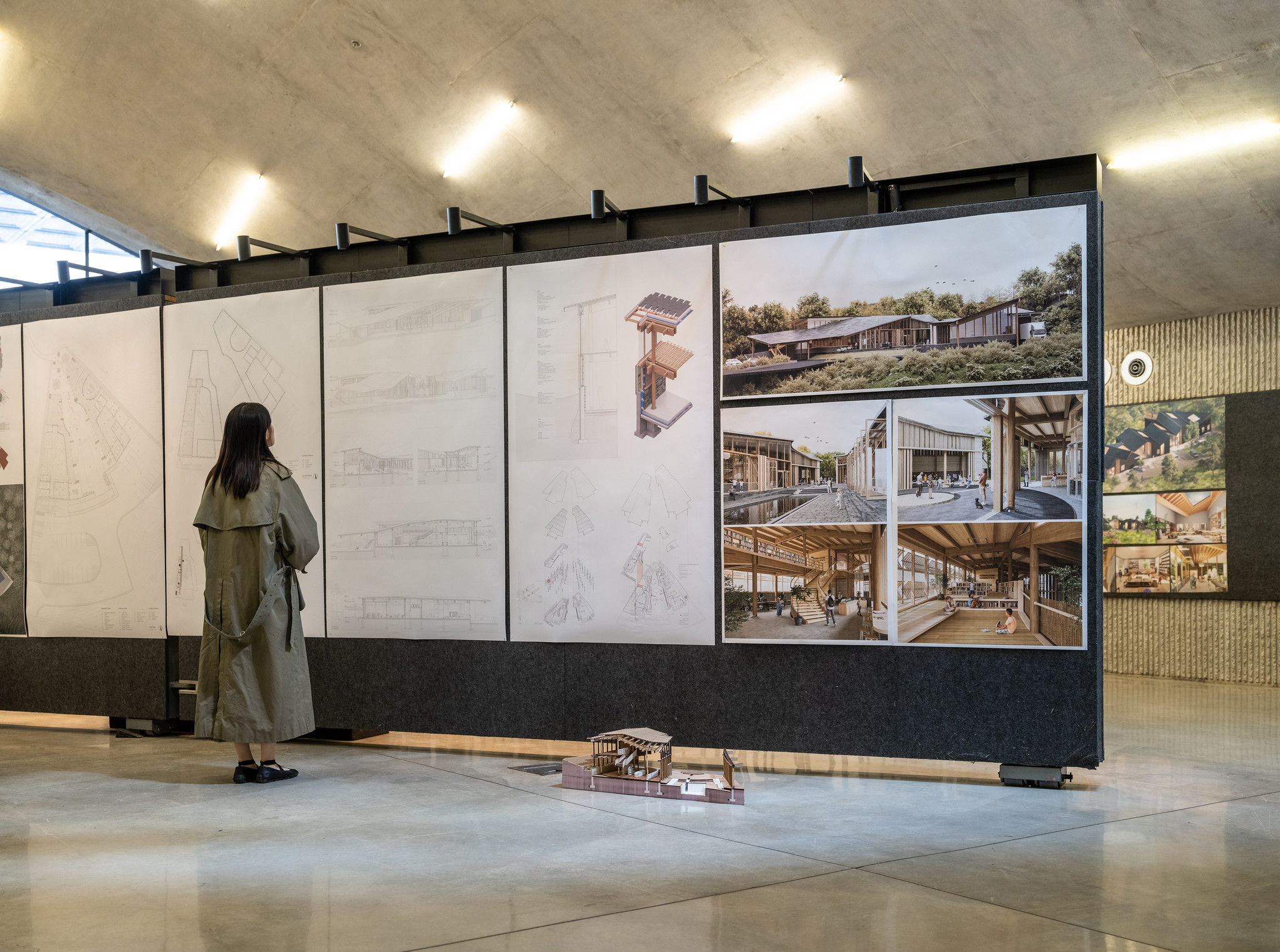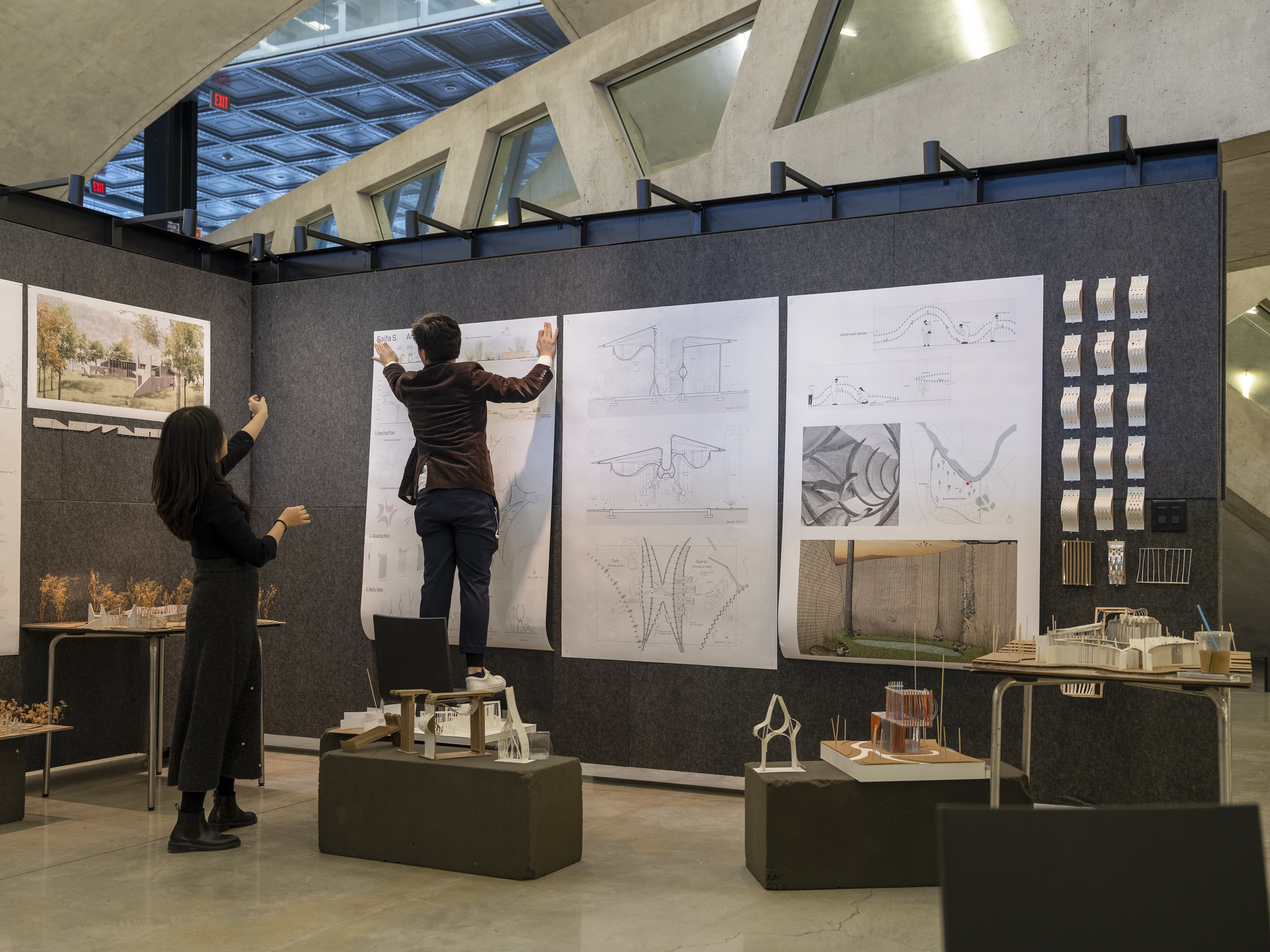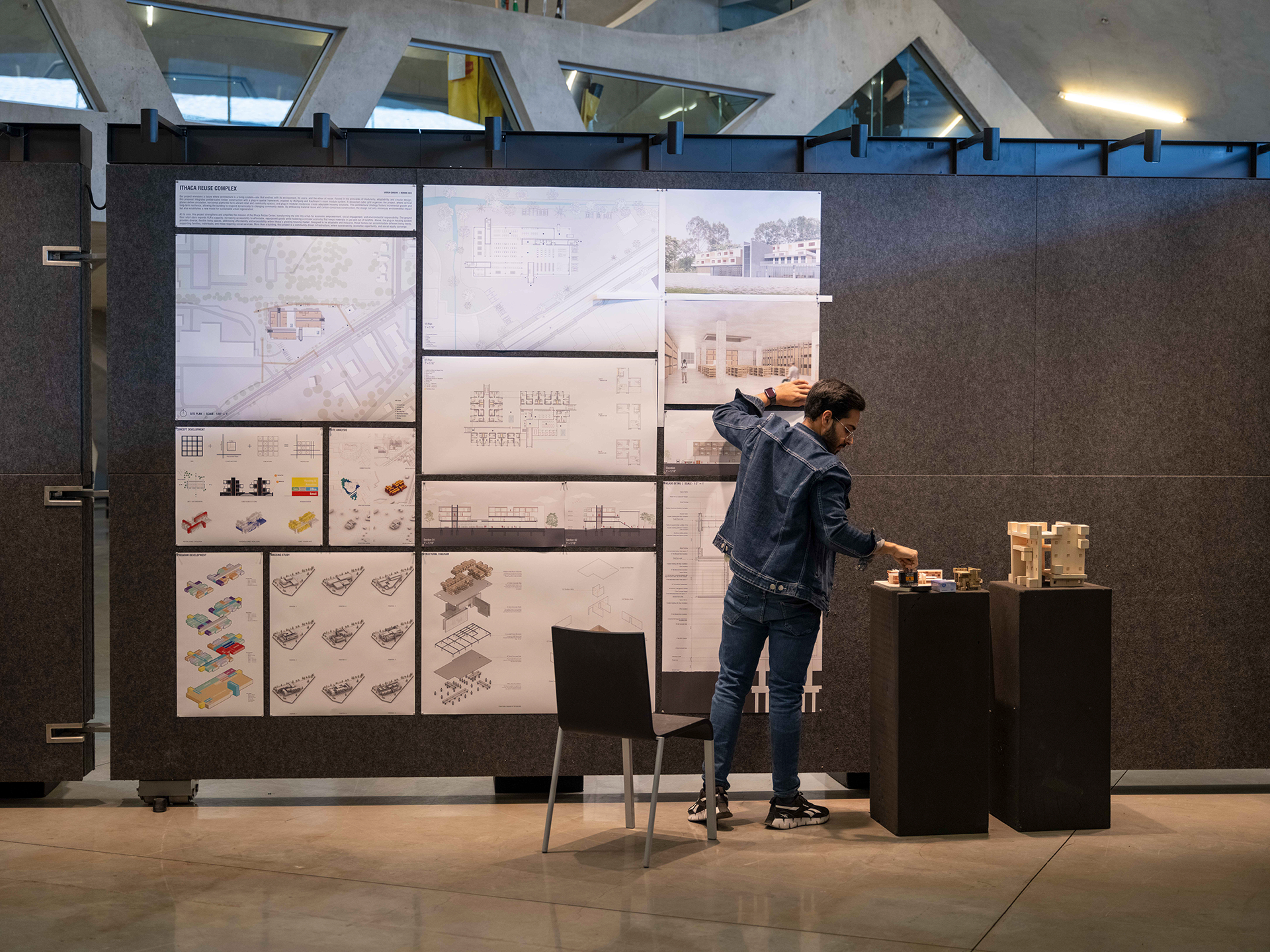Cornell’s professional Master of Architecture (M.Arch.) program uniquely engages global practices through a foundation in making and conceptual thinking. Its close community of talented and dedicated students and faculty work together to push the boundaries of the discipline.
The fully accredited M.Arch. program is a three-and-one-half-year course of study dedicated to preparing graduate students from diverse disciplines and backgrounds for careers in architecture. The M.Arch. program is open to applicants possessing a four-year bachelor’s degree in any discipline. Students interested in applying from fields outside architecture are encouraged to enroll in Cornell’s Intro to Architecture program.
Consistent with the broader mission of the Department of Architecture, the M.Arch. program is committed to the view that the nature of contemporary practice must be continually investigated and reassessed in today’s globally expansive and technologically dynamic context. The program places questions of practice, design, and fabrication and making at the center of the learning process, and seeks to develop students’ sense of inquiry, responsibility, and creativity as they formulate their unique professional trajectories. The program aims to engage the unique strengths and needs of graduate students — the variety of academic and life experiences that they bring to the discipline.
The professional Master of Architecture program situates itself internationally, drawing upon distinguished national and international visitors occupying AAP NYC’s studio, and traveling to locations worldwide in the studio context.
The M.Arch. program is accredited by the National Architectural Accrediting Board (NAAB). In addition, the M.Arch. program is now designated as a STEM program in Architectural and Building Sciences/Technology (CIP code 04.0902) making international M.Arch. graduates eligible to extend their F-1 visas for up to three years in order to work in the United States.
Curriculum
The professional Master of Architecture (M.Arch.) curriculum is designed to support and augment the design studio sequence while allowing each student flexibility to forge an individual path. The design sequence begins with the fundamentals of architectural design as a conceptual discipline, deployed at a range of scales. The second semester focuses on relational and ecological design thinking through the interpretive, analytical, programmatic and generative uses of digital and hybrid media. The Engaged Practices studio (3rd semester) foregrounds socio-cultural issues, and inclusive and resilient design. The Integrative Design studio (4th semester) develops the detailed design of a building.
This is followed by two semesters of Option Studios, where students study in NYC in the fall, with the possibility to elect a continuing NYC-based program (space permitting) or an Ithaca-based program in the spring. In the AAP NYC studios, urban issues are investigated in relation to ecological, technological and cultural practices. In Ithaca, students select from a robust array of topical territories of investigation, including studios with a focus on ecological issues, social issues, emerging technology, and theory & representation, amongst others. These options allow increased self-determination for the student to hone their own trajectory before entering the final semester, which includes an independent research/design thesis supported by the faculty.
In addition to the design studios, the M.Arch. curriculum comprises a rich offering of required and elective classes in visual representation, architectural theory, history of architecture and urban development, building technology, and professional practice, as well as an array of electives throughout the greater university.


